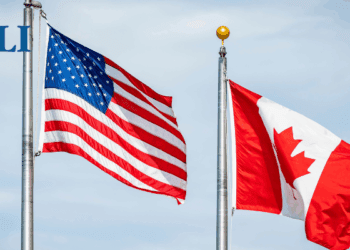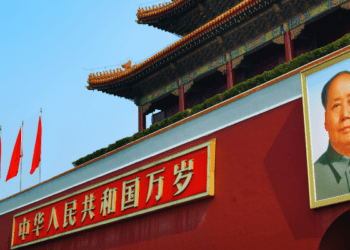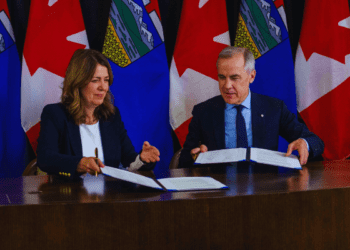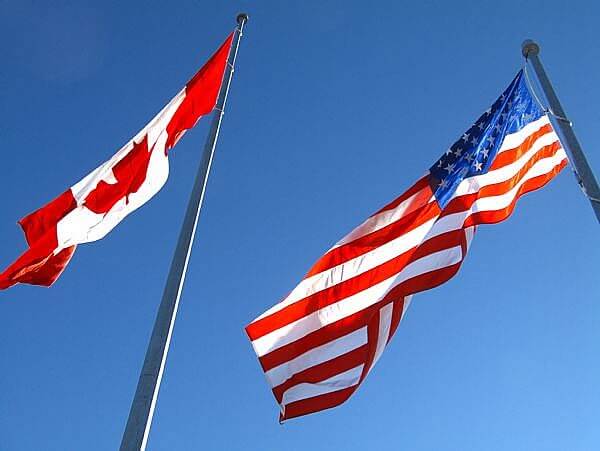On November 11, 2011, Jack Granatstein and Michael Byers debated the resolution, “Should Canada focus on keeping the peace?”, as part of the second debate in MLI’s History Wars series. Their opening statements were published in the Ottawa Citizen on November 12th. They are copied below, beginning with Michael Byer’s argument.
Should Canada focus on keeping the peace?
YES: Peacekeeping is not passé, writes Michael Byers. We don’t hear about it because it works
By Michael Byers, Ottawa Citizen, November 12, 2011
We need action not only to end the fighting but to ‘We make the peace ….”
Spoken by Lester B. Pearson in 1956, these words grace the side of the peacekeeping monument in Ottawa. They also provide an insight into the true nature of this difficult and often dangerous task.
Pearson knew a great deal about war. He served in both the army and air force during the First World War. During the Second World War, he served as a diplomat in London and Washington.
When he spoke about making the peace, he was drawing a distinction from two other types of missions: the defence of one’s country from outside attack, and forward-leaning interventions aimed at defeating opponents overseas.
Canadian soldiers have served nobly in the defence of our country. During the Cold War their principal duty was, not to make the peace, but to guard against the Soviet threat.
Canadian soldiers have also served nobly in a forward-leaning “counterinsurgency” in Afghanistan. A mission that, from a security perspective, was optional, since al-Qaeda had relocated elsewhere by 2005 and the Taliban posed no significant threat to Canadians in Canada.
Jack Granatstein has admitted as much, writing last month that: “Canada did have one core reason – to be in Kandahar from beginning to end. Ottawa wanted to take on a dangerous and heroic mission in a difficult struggle in order to achieve influence in determining the course of that struggle. That was so that Canada would no longer be seen in Washington and Brussels as a free rider …”
Peacekeeping is also optional, insofar as it is not directed at existential threats to this country. It is something that Canada traditionally did, not to curry favour with the United States, but to promote our long-term interests in international peace and security.
Granatstein and I agree on the need to defend our country. Where we disagree is on the appropriate focus of our optional missions overseas.
For more than a decade, Granatstein has argued that peacekeeping is passé and counter-insurgencies are the new reality. Yet the turn away from peacekeeping has been a choice rather than a necessity, driven in large part by a desire – on the part of the defence lobby – to maintain and increase budgets in a significantly more peaceful, post-Cold War world.
Critics of peacekeeping often point to the failed UN missions in Bosnia, Somalia and Rwanda. They ignore the very many more successful UN peacekeeping missions: in Cambodia, East Timor, Mozambique, El Salvador, Lebanon, and elsewhere.
They also ignore the reasons for failure, which more often than not are rooted in failures of political will – not on the part of the UN as an organization, but on the part of the member states that make it up.
They ignore the fact that the member states have learned from their mistakes. UN peacekeeping missions today have clear and strong mandates to “use all necessary means” to protect peacekeepers and civilians alike.
Some critics propagate the myth that peacekeeping is for “wimps,” a myth that found its ultimate expression in U.S. Secretary of State Condoleezza Rice’s October 2000 comment, “We don’t need to have the 82nd Airborne escorting kids to kindergarten.”
Rice, of course, was a member of the U.S. administration that failed to develop a peacekeeping plan for post-intervention Iraq, with untold consequences for Iraqi civilians, U.S. and allied military personnel, and ultimately the global position and reputation of the United States.
Most important, those who denigrate peacekeeping dishonour the thousands of Canadian veterans who served in these missions, and particularly the 114 who were killed.
Peacekeeping requires diplomacy, discipline, and considerable courage. Peacekeepers have to be able to negotiate when possible, and fight when necessary. Achieving that balance, and acquiring all those skills, is an enormously challenging and uniquely valuable task.
Again, our American friends do not do peacekeeping very well, and this has created a real niche for Canada. If we want to make a positive difference with our optional overseas missions, adding a few thousand soldiers to the hundreds of thousands of U.S. soldiers focused on counter-insurgency operations is hardly an optimal strategy.
Instead, in addition to defending our country, we should build and use our military for missions the U.S. military is unable or unwilling to fulfil.
Canada’s distinct history, our international reputation for independence and objectivity, our highly trained, experienced, diplomatically skilled soldiers – all these attributes enable us to punch above our weight, provided we are not always punching in the same place, time and manner as the United States.
Today, there is no shortage of peacekeeping missions where Canadian soldiers could make a invaluable contribution. There are more than 81,000 blue-helmeted soldiers from 114 countries deployed in 15 separate peacekeeping operations from Kosovo to Lebanon to the Congo.
But unlike the interventions in Iraq and Afghanistan, most people have not heard of these missions – because they are successful. Missions such as the UN Interim Force in Lebanon, which since 2006 has created and maintained peace on the front line between Israel and Hezbollah. The UN Interim Force in Lebanon involves thousands of soldiers from Italy, France and Spain, with maritime support provided by Germany and Denmark. That’s right: the key contributors to UNIFL are NATO countries. And they’re making the world a safer place – using the tried and tested instrument of UN peacekeeping.
Michael Byers holds the Canada Research Chair in Global Politics and International Law at the University of British Columbia. The author of War Law and Intent for a Nation, he has been a visiting professor at the Universities of Cape Town and Tel Aviv.
Should Canada focus on keeping the peace?
By J.L. Granatstein, Ottawa Citizen, November 12, 2011
The resolution poses the question very starkly: Peacekeeping or war-fighting for the Canadian Forces? But the reality for both Professor Michael Byers and me in this debate is probably somewhere in the middle.
Certainly I want the Canadian Forces to be able to fight a war if necessary and to be able to do all varieties of peace operations – and everything in between the two.
The real question is what kind of CF we need to cover the spectrum of conflict. Can a peacekeeping-only force, lightly equipped and trained only for peace missions, ever be sufficient? I think not, certainly not for tough peace enforcement or R2P (Responsibility to Protect) operations.
A peacekeeping-trained force can only do peacekeeping. But a Canadian Forces trained for war, a force much the same as we have now, can cover the spectrum of conflict. It can fight a war, as in Afghanistan, or an R2P operation, as in Libya. It can do peace operations of the traditional types whenever and wherever called upon. A well-trained soldier, in other words, can fight or act as an observer, serve as a buffer between warring parties, or as a peace enforcer. The
peacekeeping-only soldier can only act as an observer or as a buffer. To me, this is decisive when, as they always will be, the CF’s numbers and budgets are limited.
But having said this, Canada still must exercise judgment on where it sends its men and women in uniform.
First, any peacekeeping deployment abroad in any substantial numbers should be approved by Parliament to ensure it serves our national interests and has the support of the people’s representatives.
Second, every such deployment must also meet clear conditions.
It must have a good chance of success.
It must have the support of the United Nations Security Council and be funded by the UN.
It must have the agreement of the parties to the conflict (or if it is a Responsibility to Protect conflict, there must be strong allies committed to the mission).
And it must have an end date. That said, I do not believe that combat missions, such as Afghanistan, should ever have an announced end date. Such a fixed cutoff point only encourages the enemy to continue to resist and weakens the resolve of our allies, as occurred in Afghanistan.
Nor do I believe, as our government now appears to, that UN approval is necessary for every combat deployment. To have an obdurate Russia and China (or sometimes a capricious France!) with the ability to exercise a veto on the actions of the West puts too much at risk and makes no sense.
For peace operations and for R2P missions, however, United Nations approval ordinarily should be a prerequisite.
The key for Canada, however, is that saying yes to the UN is not and should never be automatic. Judgment must always be exercised and questions must be asked before Canada commits to every UN deployment and indeed to all other deployments as well.
Can the mission work? Do we have enough of the right troops with the right training and equipment? Is the situation on the ground appropriate for us? Can it be made logistically workable? Do we have competent allies there? Can the UN (or NATO or a “coalition of the willing”) get its act together?
If the answers to these questions are not satisfactory, no Canadian government should put its soldiers’ lives at risk.
Peace operations are important, and they can be helpful and useful. But they should only ever be a subsidiary role for the Canadian Forces (or, indeed, any nations’ forces). The purpose of any military is to defend the national interests, and although neither Canadians nor their government think much about it, Canada does have national interests.
It is a conceit to assume, as too many Canadians do, that peacekeeping is a defining aspect of the Canadian identity, something that reflects our fundamental values and beliefs. It does not and never has.
The Canadian Forces must always be employed to protect our true fundamental values and interests – first and foremost, the safety and security of our territory, people, and our independence, and the defence with all our strength of the values of freedom and democracy.
During Remembrance Week, indeed every day, that is the proper lesson for us to draw.
Historian J.L. Granatstein writes on Canadian military and diplomatic history. He was director and CEO of the Canadian War Museum.
HISTORY WARS
Last night at the Bronson Centre, historian Jack Granatstein and UBC professor Michael Byers debated the resolution: “After Afghanistan, Canadian Forces should keep the peace rather than wage war.” Moderated by Michael Bliss, the debate was hosted by the Macdonald-Laurier Institute and sponsored by the Ottawa Citizen.





